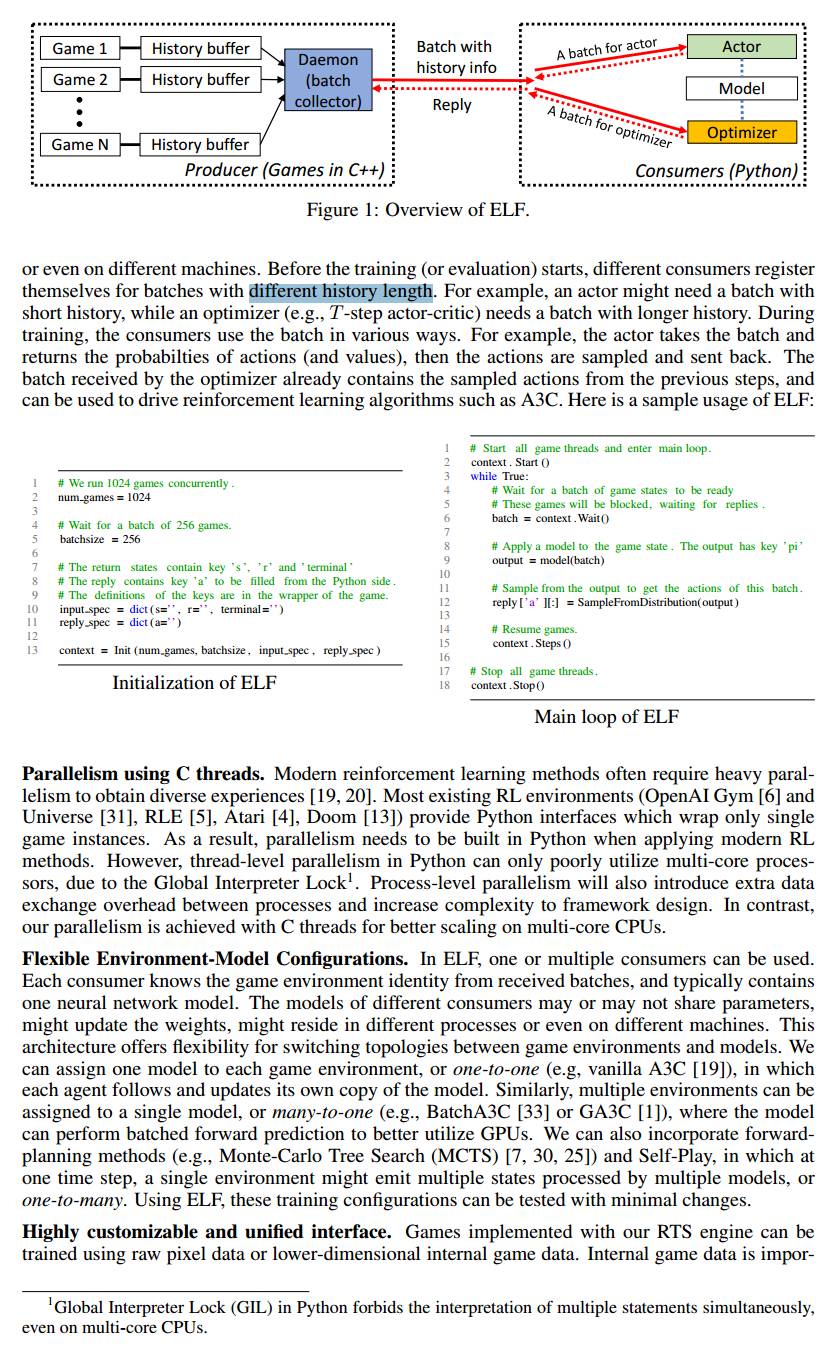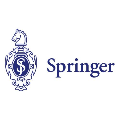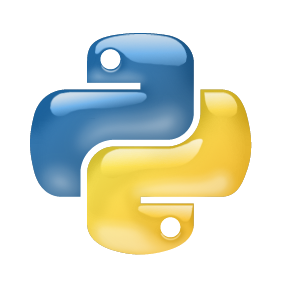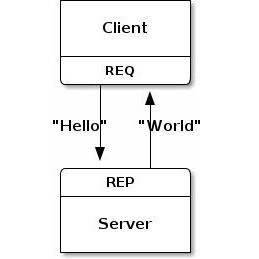facebook ELF
An End-To-End, Lightweight and Flexible Platform for Game Research
ELF: An Extensive, Lightweight and Flexible Platform for Game Research
Overview
ELF is an Extensive, Lightweight and Flexible platform for game research, in particular for real-time strategy (RTS) games. On the C++-side, ELF hosts multiple games in parallel with C++ threading. On the Python side, ELF returns one batch of game state at a time, making it very friendly for modern RL. In comparison, other platforms (e.g., OpenAI Gym) wraps one single game instance with one Python interface. This makes concurrent game execution a bit complicated, which is a requirement of many modern reinforcement learning algorithms.
Besides, ELF now also provides a Python version for running concurrent game environments, by Python multiprocessing with ZeroMQ inter-process communication. See ./ex_elfpy.py for a simple example.
For research on RTS games, ELF comes with an fast RTS engine, and three concrete environments: MiniRTS, Capture the Flag and Tower Defense. MiniRTS has all the key dynamics of a real-time strategy game, including gathering resources, building facilities and troops, scouting the unknown territories outside the perceivable regions, and defend/attack the enemy. User can access its internal representation and can freely change the game setting.
ELF has the following characteristics:
End-to-End: ELF offers an end-to-end solution to game research. It provides miniature real-time strategy game environments, concurrent simulation, intuitive APIs, web-based visualzation, and also comes with a reinforcement learning backend empowered by Pytorch with minimal resource requirement.
Extensive: Any game with C/C++ interface can be plugged into this framework by writing a simple wrapper. As an example, we already incorporate Atari games into our framework and show that the simulation speed per core is comparable with single-core version, and is thus much faster than implementation using either multiprocessing or Python multithreading. In the future, we plan to incorporate more environments, e.g., DarkForest Go engine.
Lightweight: ELF runs very fast with minimal overhead. ELF with a simple game (MiniRTS) built on RTS engine runs 40K frame per second per core on a MacBook Pro. Training a model from scratch to play MiniRTS takes a day on 6 CPU + 1 GPU.
Flexible: Pairing between environments and actors is very flexible, e.g., one environment with one agent (e.g., Vanilla A3C), one environment with multiple agents (e.g., Self-play/MCTS), or multiple environment with one actor (e.g., BatchA3C, GA3C). Also, any game built on top of the RTS engine offers full access to its internal representation and dynamics. Besides efficient simulators, we also provide a lightweight yet powerful Reinforcement Learning framework. This framework can host most existing RL algorithms. In this open source release, we have provided state-of-the-art actor-critic algorithms, written in PyTorch.
Documentation
Check here for detailed documentation. You can also compile your version in ./doc using sphinx.





